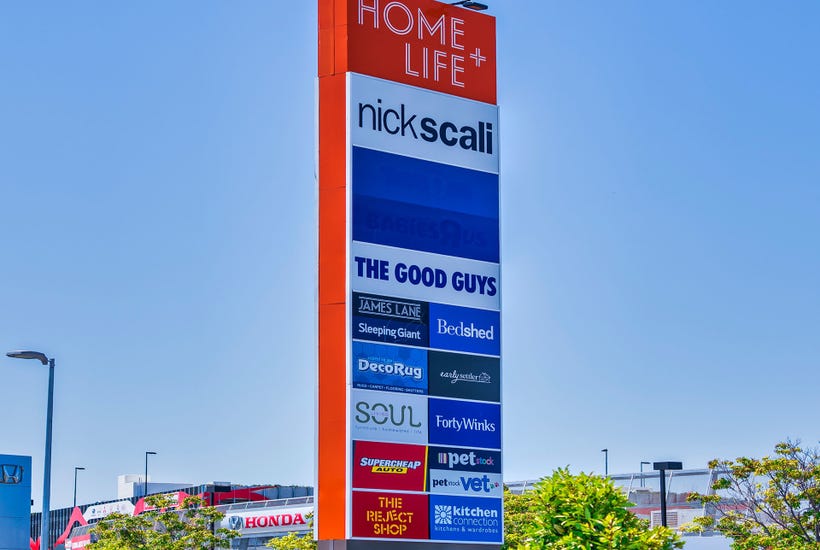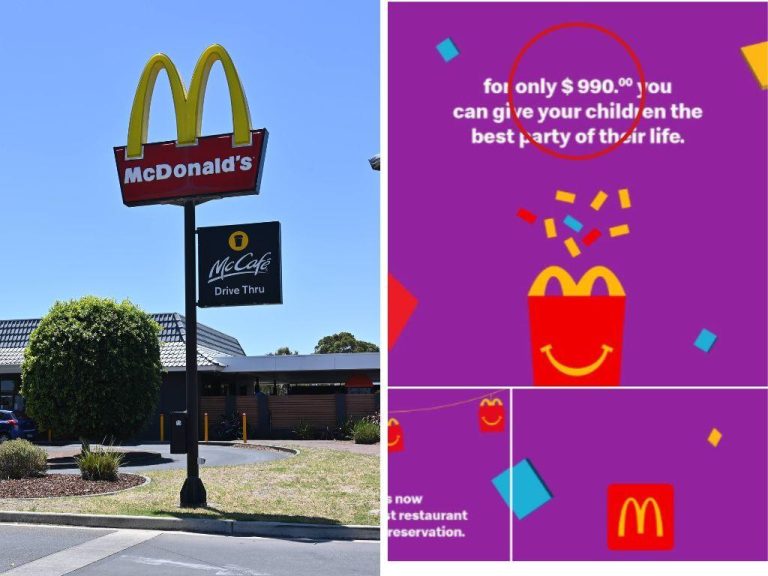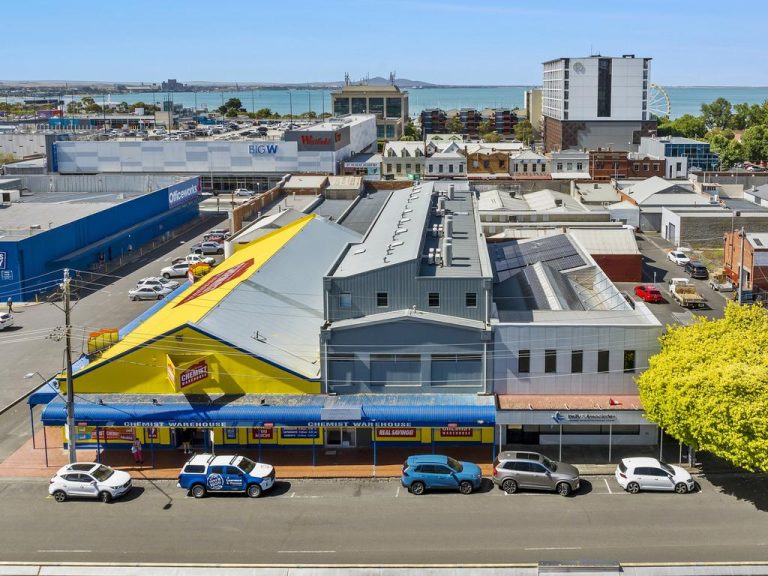Strong demand for ‘big box’ retail centres amid COVID housing boom

Investors are targeting ‘big box’ retail centres as Australians spruce up their homes during the coronavirus pandemic and housing boom.
Large format retail centres have changed hands for as much as $100 million this year amid significant investor demand given the sector’s strong performance during the pandemic.
REA Group economist Anne Flaherty said the LFR sector has benefited from the home improvement trend during COVID-19, with the housing boom adding to demand for furniture, electrical goods and hardware.
“Unlike many forms of retail which struggled over the last 12 months, large format retail has performed strongly,” Ms Flaherty said.
“During 2020 household goods retailing was the strongest performing retail sector.
“The current low interest rate environment and last year’s COVID lockdowns drove a surge in home improvements and renovations, driving up demand for hardware and furniture.”

Australians have been on a home improvement spending spree. Picture: realcommercial.com.au/for-sale
Ms Flaherty said the strength of the housing market was also supporting big box retailers, as people move or renovate their homes.
“More people relocating means more people furnishing houses, again driving up demand for products sold by large format retail stores such as hardware, furniture and whitegoods,” she said.
“Spending on renovations and additions to existing dwellings has been trending upwards and hit record highs over the March quarter.”
Strong buyer demand underpins large format retail deals
Queensland government-owned investment company QIC sparked the two biggest deals so far in 2021: the April sales of a trophy LFR centre in Melbourne to Harvey Norman for $97 million and a Gold Coast complex to property fund manager Primewest for $66 million.
Primewest added the 14,782sqm Robina Home + Life complex to its $1 billion LFR portfolio, with its executive chairman John Bond noting the LFR sector had shown significant growth during COVID-19 and continued to benefit from the strong residential market.

The $66 million sale of the Robina Home + Life Centre on the Gold Coast is one of the biggest LFR sales this year. Picture: realcommercial.com.au/for-sale
The selling agents at Savills Australia and JLL said a fund managed by Primewest fought off a deep pool of cashed-up investors to secure the Robina centre, which is anchored by Nick Scali and The Good Guys.
Savills national director of retail investments Peter Tyson said the sale process generated purchase offers from 16 separate groups.
“The campaign demonstrated significant investor demand for the large format retail sector, which is being driven by a combination of macro factors, including strong market demand for quality income streams, low cost of debt and the uplift in trading performance across the home improvements sector,” he said.
QIC Global Real Estate managing director Michael O’Brien said the Robina centre and 25,931sqm Watergardens Homeplace in Melbourne’s Taylors Lakes were non-core assets that both generated strong buyer interest and were sold at a significant premium to book value.
Colliers head of retail investment services Lachlan MacGillivray said Watergardens Homeplace was pursued by a large range of investors who were attracted to its defensive nature in a high-growth location. The seven-hectare site is anchored by Harvey Norman and Bunnings stores.

Retailer Harvey Norman paid $97 million for Melbourne’s Watergardens Homeplace centre. Picture: realcommercial.com.au/for-sale
“Watergardens Homeplace attracted unprecedented levels of interest, with a record number of enquiries and bidders from interested parties located nationally and overseas,” Mr MacGillivray said.
He said the $97 million sale reflected an initial yield of 4.75%, the lowest recorded for a LFR centre of that size.
“This campaign highlights the pent-up demand for dominant, well-located trophy assets like Watergardens Homeplace; at the conclusion of this campaign there remains over $1 billion in unsatisfied capital seeking opportunities in the LFR sector.”
Harvey Norman also bought the Geraldton Homemaker Centre in Western Australia for $28.25 million in March from property investment firm Sentinel Group Australia. The 15,948sqm centre’s tenants include The Good Guys, Supercheap Auto, Spotlight and Forty Winks.
Billionaire John Van Lieshout, who founded the Super A-Mart furniture chain, added to his big box assets along a busy road in the southern Brisbane suburb of MacGregor. He bought a LFR and specialty asset from a private family for $17.5 million in May.
The Knight Frank agents who negotiated the deal said the 1.1-hectare site, which has 8,174sqm of lettable area, adjoins Mr Van Lieshout’s other LFR properties on Kessels Road, creating a holding of more than six hectares.

Billionaire John Van Lieshout bought a LFR centre next to his other big box assets in MacGregor. Picture: realcommercial.com.au/sold
Agent Christian Sandstrom said the expressions of interest campaign for the fully-leased property generated more than 110 enquiries from local and interstate investors, noting properties in the heart of the Kessels Road commercial and retail precinct were rarely offered for sale.
Australia’s biggest LFR owner and manager Aventus in May agreed to sell MacGregor Home, also on Kessels Road, to funds management company Stirling Property Funds for $42.15 million – a significant premium to its December 2020 book value of $26.6 million.
The 12,330sqm centre is one of the smallest in the Aventus Group’s $2 billion portfolio of 20 LFR complexes.
Updated independent valuations of the entire Aventus property portfolio are being undertaken with the company’s board saying recent market transactions indicated strong investment demand and value uplift in LFR centres given their performance through COVID-19.
The CBRE team who negotiated the $28.85 million sale of HomeCo Morayfield in May said strong buyer interest and demand resulted in a fully-leased sale yield of 6.93% and a 5% premium to the Queensland centre’s book value.
“Since the onset of the global pandemic, we have seen a marked increase in capital searching for large format and non-discretionary retail, with a particular focus on assets that provide strong lease covenants and tenure,” CBRE director – retail investments Joe Tynan said.
Mr Tynan said the investor demand had been underpinned by the strong ongoing performance of LFR categories on the back of elevated pandemic-related spending in areas such as home improvements, furniture and electronics.

Australians have been spending big on furniture, home improvements, electronics and hardware. Picture: realcommercial.com.au/sold
HomeCo Morayfield was sold to independent property fund manager Argus Property Partners, which also bought HomeCo Bathurst in regional NSW for $17 million in January.
Another HomeCo-branded homemaker centre, in Rutherford in the NSW Hunter region, was sold to boutique investment house TAMIM Asset Management for $23.2 million in March in a CBRE-negotiated deal.
Other LFR retail deals this year included the $12.39 million sale of developer Troon Group’s Ballarat Lifestyle Centre to a Melbourne-based private investor. Selling agents from Stonebridge Property Group and Colliers said the sale reflected a yield of 5.98% and followed a highly-competitive expressions of interest campaign.
CBRE is selling the Clarkson Lifestyle Zone in Perth’s north on behalf of a syndicate, describing it as a circa $40 million investment opportunity. Expressions of interest remain open for the 14,000sqm LFR centre, whose anchor tenants include The Good Guys, Beacon Lighting and Supercheap Auto.

The Clarkson Lifestyle Zone in Perth’s north is up for sale. Picture: realcommercial.com.au/for-sale
Investors are hunting for retail investments leased to national operators, according to the CBRE team selling the Barbeques Galore store in the Fountain Gate Supercentre in Melbourne’s Narre Warren.
“Post last year’s lockdowns, families are investing money in revamping their homes, whether it be remodeling interiors or upgrading outdoor dining arrangements, with continued growth in the sector anticipated due to the strong national residential market,” CBRE agent Scott Hawthorne said.
Home goods spending spree driving big box demand
Ms Flaherty said the strong demand for LFR centres or individual assets such as Bunnings warehouses was linked to the strength of household goods sales.
“Significant demand for LFR space comes from retailers operating in household goods retailing, which has been and is likely to continue performing strongly,” Ms Flaherty said.
“In addition, LFR spaces can attract a broad range of tenants, make it quite a resilient asset class and less sensitive to shocks in specific retail sectors.”
Ms Flaherty said as people have been spending more time at home during the pandemic, many have been improving their home working spaces as well as focusing on making their homes more comfortable and liveable in general.
In a research report, CBRE analysts noted LFR continued to outperform other retail sectors as growth continued in the asset class in the first quarter of 2021.
“It is expected that the appetite for LFR investment will remain strong throughout 2021 as spending in home and hardware is forecast to continue, combined with the demand for well-tenanted assets with a long WALE [weighted average lease expiry],” the CBRE analysts said.
Australian Bureau of Statistics figures showed household goods sales grew by 17.1% in 2020, which a recent JLL research report noted reflected an additional $10 billion of annual spending.
While the latest ABS data showed household goods retailing fell by 1.6% in the March quarter, it was still 10.3% higher year-on-year in the month of March 2021.
In JLL’s annual shopping centre investment review and outlook report, JLL senior director of retail research Andrew Quillfeldt noted LFR tenants were among the key beneficiaries of changes in spending habits in 2020.
Mr Quillfeldt said fitness and recreation, home office furniture and equipment and home renovation categories all recorded a boost in sales as a result of lockdown restrictions, while the federal government’s HomeBuilder program also supported the growth in home-related spending.
“The build-up of household savings and increase in home building and renovation activity is likely to support large format retailing in 2021,” Mr Quillfeldt said.
“While there has been a significant ‘pull-forward’ of purchases of household goods over the last year, acceleration in home building and renovation activity is likely to continue to support large format retail tenant performance over the next one to two years.”
Rent collection rates were high in 2020, the supply of traditional homemaker space had been low for the last few years and the vacancy rate for LFR assets nationally fell to 3.4% in the fourth quarter of 2020 from 4.6% a year earlier, Mr Quillfeldt added.







